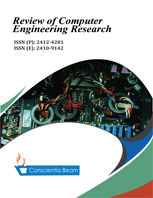Performance analysis of IoT networks in terrestrial environment utilizing LZW data compression technique
DOI:
https://doi.org/10.18488/76.v10i4.3550Abstract
The proliferation of Internet of Things (IoT) devices in terrestrial environments necessitates efficient data transmission and management protocols to optimize network performance. This research paper presents a comprehensive study on the implementation of IoT networks in a terrestrial setting, focusing on the integration of LZW (Lempel-Ziv-Welch) compression with three prominent IoT protocols: CoAP (Constrained Application Protocol), M2M (machine-to-machine), and MQTT (Message Queuing Telemetry Transport). We did a thorough test of these protocols using the NetSim simulator. We looked at how well they worked in terms of throughput, en-to-end delay, and routing overhead, all of which are important for loT network efficiency. The point of our study is to find out what the pros and cons of these protocols are when they are combined with LZW compression in a terrestrial loT setting. The results of our analysis reveal significant variations in the performance of CoAP, M2M, and MQTT when subjected to data compression. Throughput efficiency, which directly impacts data transmission rates, is scrutinized alongside end-to-end delay, a critical factor in ensuring timely data delivery. Additionally, we explore the implications of protocol choice on routing overhead, a crucial metric for network resource utilization. This research contributes to the ongoing efforts to optimize IoT networks in terrestrial settings, offering valuable guidance to network architects and developers seeking to strike the right balance between protocol selection and data compression for improved IoT performance.





